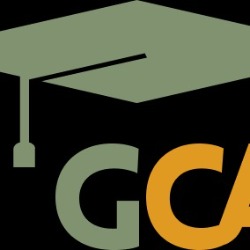Embark on a journey into the world of automotive mechanics with our comprehensive General Mechanic Course. Designed for enthusiasts and aspiring professionals alike, this course covers the fundamentals and advanced principles of automotive maintenance and repair. Gain hands-on experience with a wide range of vehicles and systems, guided by industry experts who are dedicated to preparing you for a successful career in the automotive service industry.
Module 1: Introduction to Automobile Mechanics
Lesson 1.1: Overview of the Automobile Mechanic Trade
- Introduction to the role of an automobile mechanic.
- Types of mechanics (general, specialized, dealership, independent).
- Overview of the course and objectives.
Lesson 1.2: Basic Automotive Theory
- Understanding the basic principles of how cars work.
- Key components of a vehicle: Engine, transmission, brakes, electrical system.
- Introduction to automotive systems: Fuel, ignition, exhaust.
Lesson 1.3: Safety in the Workshop
- Importance of safety in automotive work.
- Personal protective equipment (PPE).
- Workshop safety procedures and regulations (OSHA guidelines).
- Identifying and mitigating hazards in the workshop.
Module 2: Tools and Equipment
Lesson 2.1: Essential Tools for Mechanics
- Overview of basic and advanced tools.
- Proper use and maintenance of tools.
- Tool safety tips.
Lesson 2.2: Workshop Equipment
- Types of workshop equipment: Lifts, jacks, air compressors, diagnostic tools.
- Proper use and maintenance of workshop equipment.
- Safety protocols for using heavy equipment.
Lesson 2.3: Introduction to Diagnostic Tools
- Using diagnostic scanners and code readers.
- Understanding diagnostic trouble codes (DTCs).
- Basic troubleshooting techniques.
Module 3: Basic Automotive Skills
Lesson 3.1: Engine Fundamentals
- Understanding engine components and their functions.
- Basic engine types: Inline, V-type, flat.
- Introduction to engine maintenance: Oil changes, filter replacements.
Lesson 3.2: Transmission and Drivetrain
- Understanding different types of transmissions: Manual, automatic, CVT.
- Basic maintenance: Fluid checks, clutch adjustments.
- Overview of the drivetrain: Differentials, axles, driveshafts.
Lesson 3.3: Brakes and Suspension
- Understanding braking systems: Disc, drum, ABS.
- Basic maintenance: Brake pad replacement, rotor resurfacing.
- Introduction to suspension components: Shocks, struts, springs.
Lesson 3.4: Electrical Systems
- Basics of automotive electrical systems: Batteries, alternators, starters.
- Understanding wiring diagrams.
- Troubleshooting electrical issues: Fuses, relays, circuits.
Lesson 3.5: Fuel and Exhaust Systems
- Understanding fuel delivery systems: Carburetors, fuel injection.
- Basics of exhaust systems: Mufflers, catalytic converters, oxygen sensors.
- Maintenance tips: Fuel filter replacement, exhaust leak detection.
Module 4: Advanced Automotive Skills
Lesson 4.1: Advanced Engine Diagnostics
- Using advanced diagnostic tools and software.
- Troubleshooting complex engine issues.
- Engine performance tuning and modifications.
Lesson 4.2: Advanced Transmission Repair
- In-depth transmission diagnostics and repair.
- Rebuilding and replacing transmissions.
- Understanding advanced transmission systems: Dual-clutch, paddle-shift.
Lesson 4.3: Advanced Brake and Suspension Systems
- Performance brake systems: Upgrades and maintenance.
- Advanced suspension tuning: Alignments, aftermarket components.
- Understanding electronic stability control (ESC) systems.
Lesson 4.4: Hybrid and Electric Vehicles
- Introduction to hybrid and electric vehicle technology.
- Understanding battery systems and electric drivetrains.
- Safety and maintenance tips for hybrid and electric vehicles.
Module 5: Practical Experience and Projects
Lesson 5.1: Hands-on Repair Projects
- Practical exercises in diagnosing and repairing various systems.
- Simulated real-world scenarios and troubleshooting.
Lesson 5.2: Mock Job Site and Final Project
- Simulated job site experience.
- Final project: Planning and executing a comprehensive repair or upgrade.
- Presentation and evaluation of the final project.
Additional Resources
- Recommended readings and online tutorials.
- Access to practice materials and tools.
- Community forums and support groups.
Assessment and Certification
- Periodic quizzes and assignments.
- Final practical exam and project evaluation.
- Certification of completion upon meeting course requirements.
This curriculum aims to provide a thorough education in automobile mechanics, from foundational knowledge to advanced skills, ensuring students are well-prepared for a career as an automobile mechanic.




